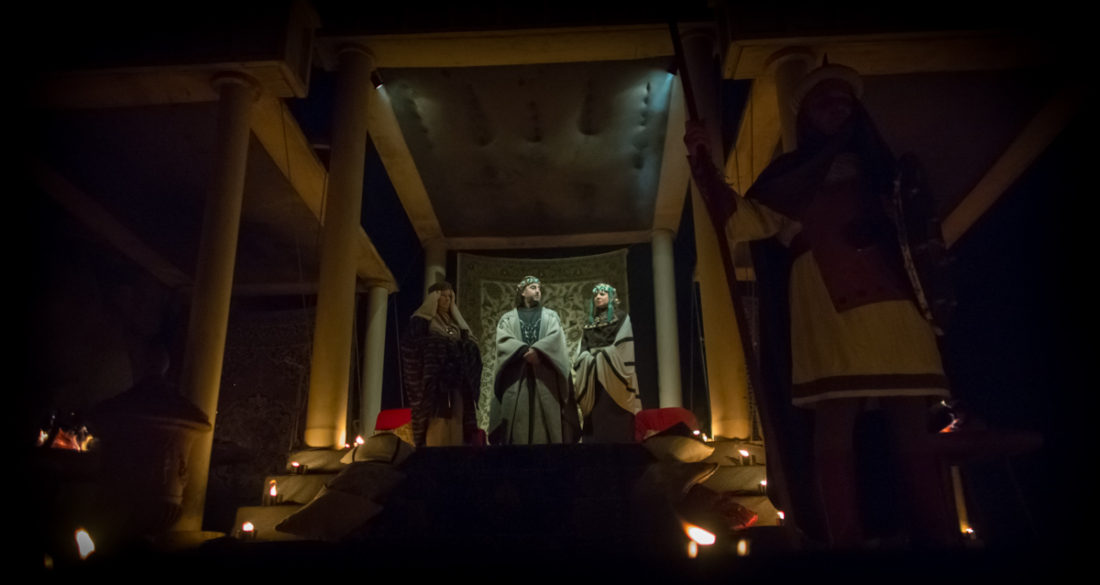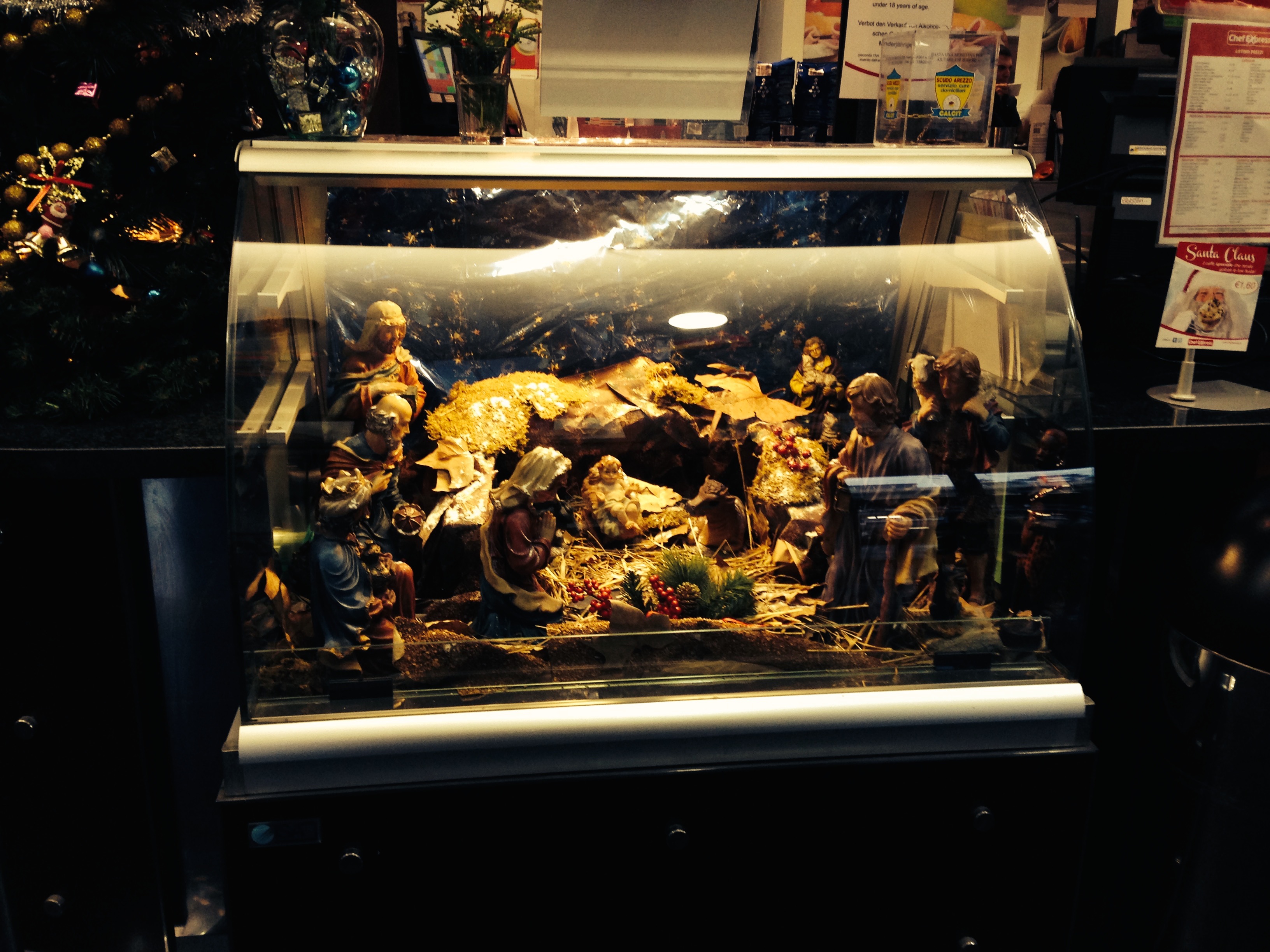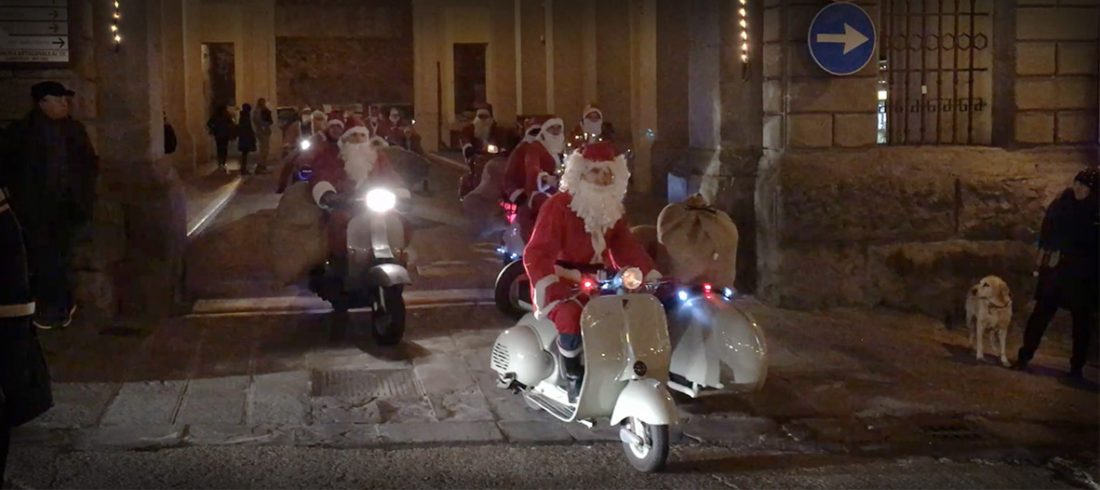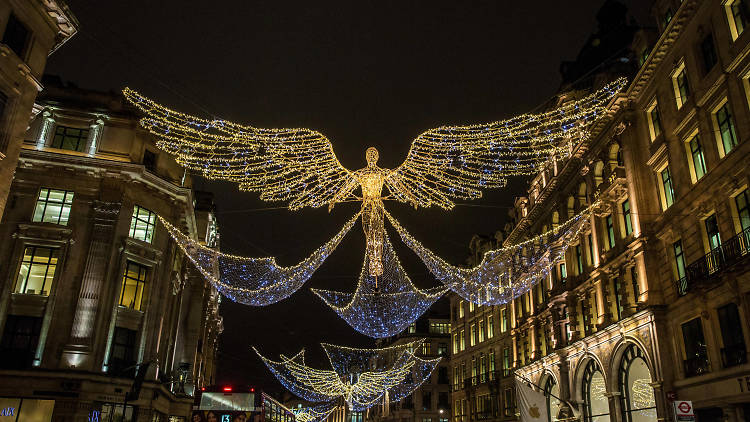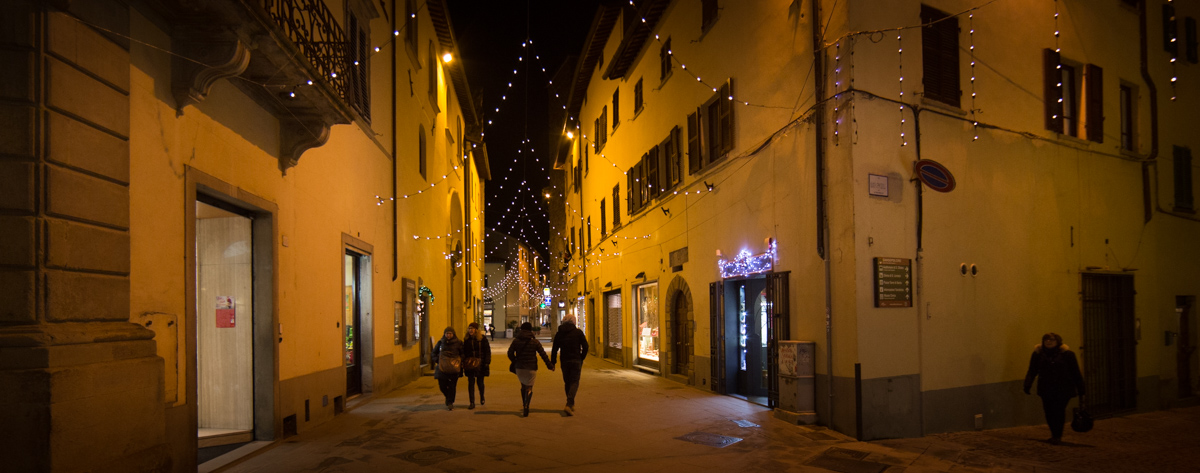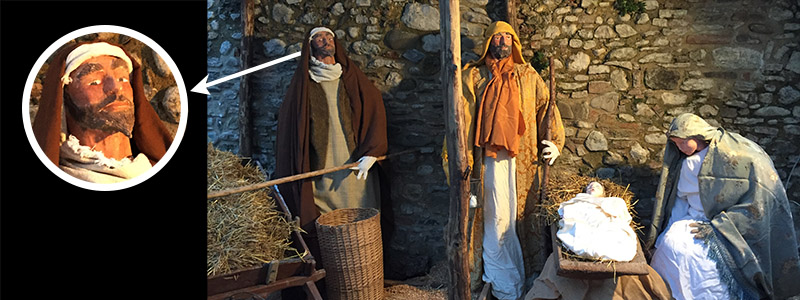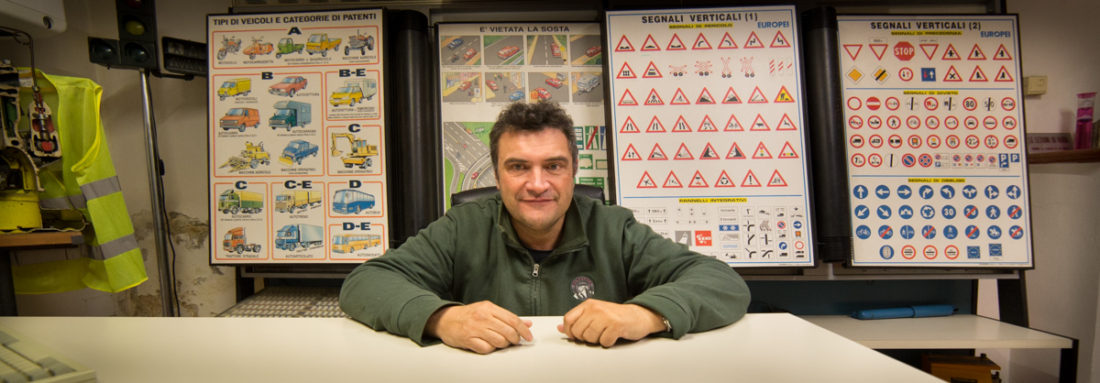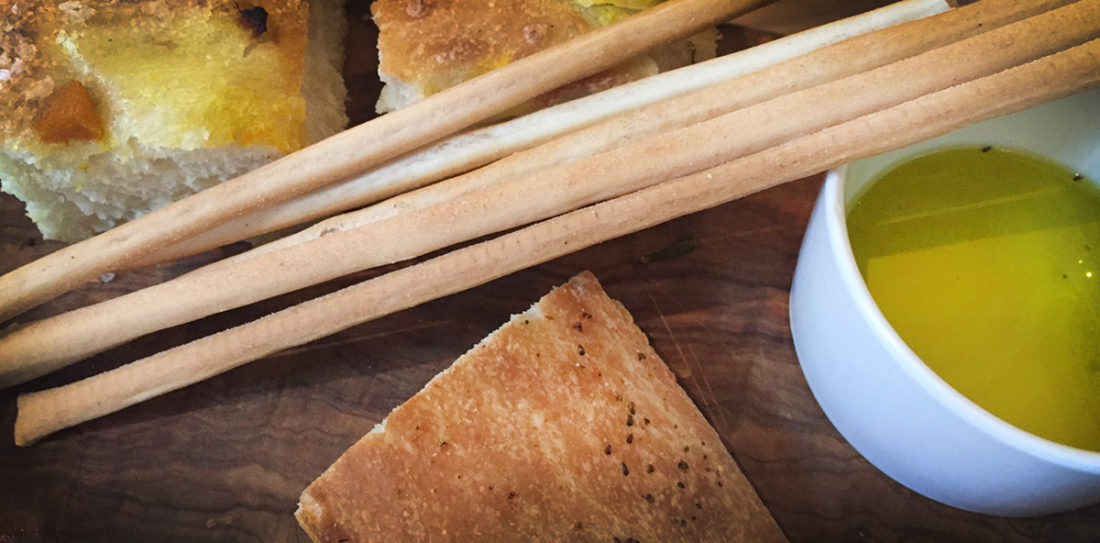Three ways Italy is different from California
During a frenzied week back in California, where I lived for most of my life, I was stuck by hundreds of differences between the Bay Area and my adopted home in Tuscany. Here are three of the stranger things I’ve noticed this week.
Dogs

Lola in a restaurant in a high chair. The owner insisted in bringing it out for her so that she wouldn’t have to be alone on the floor.
Right after we first moved to Tuscany our friends’ dogs had puppies, and we got our Lola. Having a dog has been a great window into some of the differences between Italy and the States.
Most Italians love dogs and they are welcome everywhere. Lola comes with us into restaurants, hotels, movie theaters, banks, post offices, trains… She frequently gets served a bowl of water in a restaurant before we even order. Once she and I went into a caffè and she happened to see one of her favorite dog friends. The woman who works behind the bar encouraged us to take the dogs off their leashes so that they could play. Lola and her boyfriend started romping in the caffè, bumping up against people and racing across the floor underfoot. At one point her dog friend got a little over excited and lifted his leg to pee against the bar. His owner and I froze, horrified. The other bar patrons and the owner burst out laughing and she shooed us away as we attempted to clean up the mess and insisted on doing it herself.
A couple years ago I had a minor medical procedure. When I was in the recovery room coming out from anesthesia John mentioned that Lola was tied outside the hospital. The nurse suggested that we bring her into the recovery room so that she could snuggle in bed with me and escape the heat outside. So Lola joined me in bed in the hospital room.
The kids, Lola, and I were enroute back from a long day in Florence and stopped for hamburgers. I had forgotten to bring food for Lola so she hadn’t eaten all day. Donella mentioned this to our waiter, and he and the kitchen staff went into high gear, immediately cooking a burger for Lola and bringing it out on a plate.
I can’t even imagine a parallel to any of these experiences (and there are many more) in California. The additional range of places Italian dogs go, and the experiences they have, seem to make them a bit smarter in the ways of the world, a bit more “emotionally intelligent,” than their stateside counterparts. Probably helps that most Italian dogs I see aren’t purebreds and are bred much more for personality than looks.
Of course not all dogs in Italy are pets. In our rural area I’d guess about twenty five percent of the dogs I see are working dogs—hunting dogs for wild boar and truffles, dogs that protect sheep from wolves. These dogs are not at all coddled and often live outside full time.
Lunch
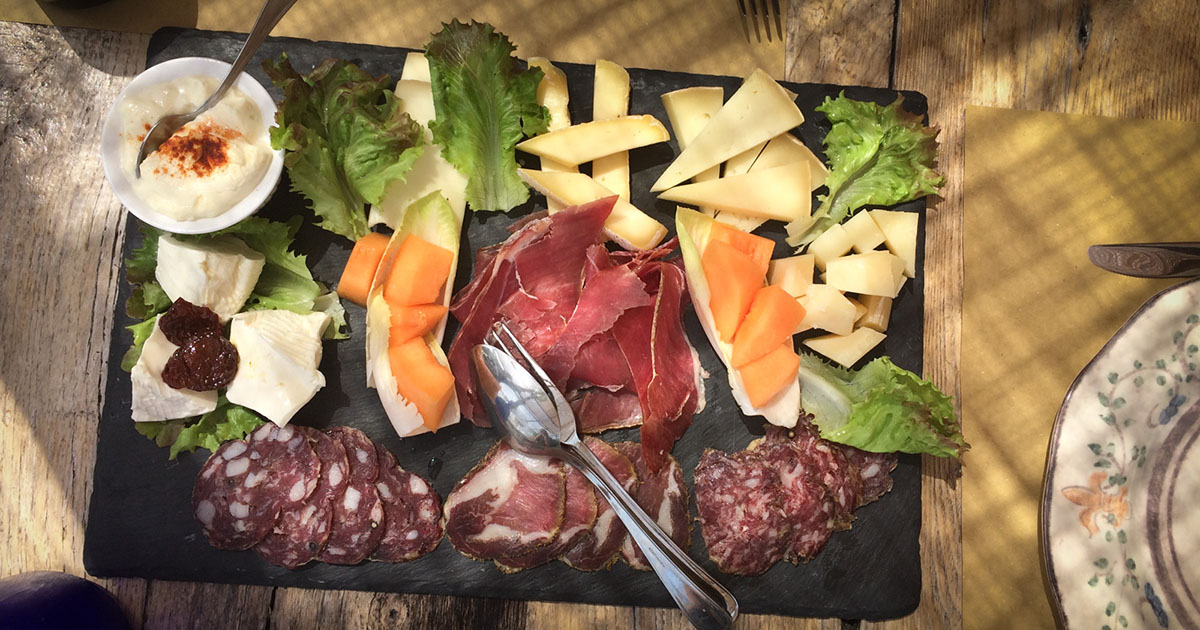
In Italy lunch is probably the single most important event of the day. The world stops for a couple of hours. Stores and offices close. School ends at 1:30 so that kids can join their families. Streets empty and the pace of life changes. Because everything shuts down it means there’s no social demarcation between people who have time for lunch and those who work through. We frequent restaurants populated by workmen, delivery truck drivers, and laborers, as well as those filled with businessmen and ladies who lunch, all lingering over a meal that lasts over an hour.
The meal is usually two to three courses—pasta, main, and dessert—accompanied by wine and coffee. People linger, talk, laugh, relax. The work day ends at 7 or 8 in the evening, but they have had this total break in the middle.
On one of my first trips back to California after we moved I raced across town to get to Target before 1:30 so that I could get what I needed before they closed for lunch. About ten minutes into my drive I realized I probably wouldn’t have that problem in Emeryville.
In the Bay Area it often feels like lunch is something to be accomplished as efficiently as possible—ideally the optimal mix of organic protein, carbs, and fat, at the right price point, consumed as efficiently as possible—so that you can get back to the “real” business of living, the important stuff that defines us. What if it turns out in the game of life that the really important thing was the lunch with friends?
Coffee
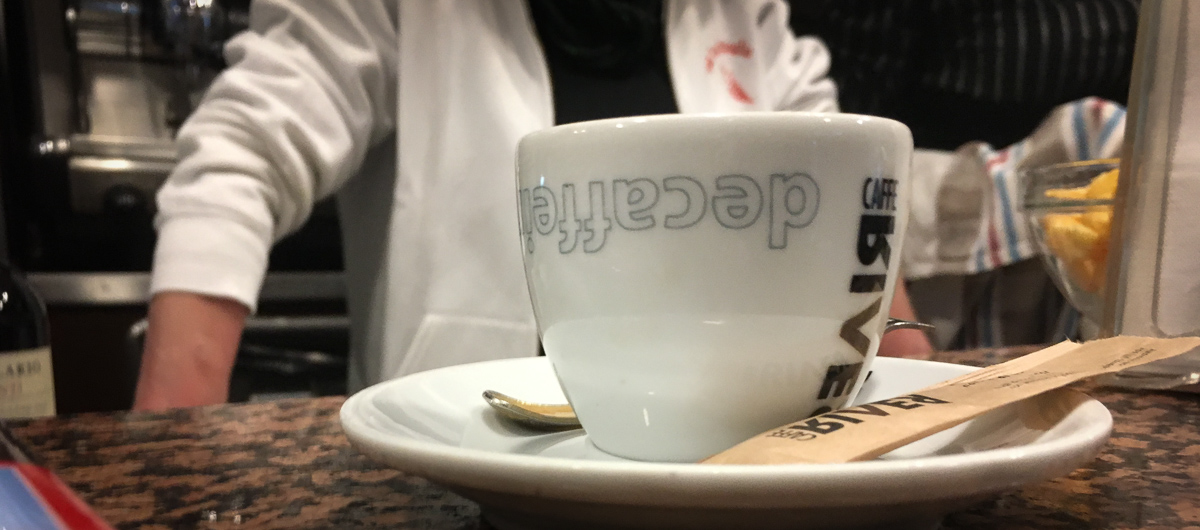
This week I’ve had time to kill between meetings so I’ve been hanging out in various coffee places, chains and independents, and noticing the differences between what it means to get coffee in Italy and in California. There are lots of obvious ones—in Italy you stand at the bar for your shot of espresso. People don’t get coffee to go. Coffee is never served in paper cups. There are no huge cups filled with 1,000 calorie mocha pumpkin unicorn frappuccinos. Cappuccinos are only had in the morning—in the litany of Italian health rules it’s believed that dairy is bad for the digestion after about noon. In California, nobody ordered a caffè corretto (literally a corrected coffee), an espresso with a healthy shot of grappa, sambuca, or some other liquor, often served late morning (or pre-dawn if you are going out with friends and loaded guns to hunt.)
But the biggest thing I’ve noticed is that having a coffee in Italy is a social act. Everyone is talking at once and standing in a group at the bar drinking shots of espresso. A visit to the caffè happens first thing in the morning, mid-morning, and mid-afternoon and waves of people congregate at these times, eager to see what is new with everyone else since when they last saw them a few hours before.
An espresso is 1€, and a cappuccino 1.20€, so people often pay for one another’s coffees. I’ve had mine picked up a lot, often by someone I haven’t even talked to that day. When you go to pay you discover it’s already been covered. There’s no weirdness in this, like there can be if someone buys your drink in a bar, and absolutely no expectation of anything in return. It’s a small flirt that puts a spring into both people’s steps, and all at for 1€. I can’t think of a comparable act in the U.S.
In contrast, I couldn’t help but notice how non-social the act of getting coffee is in California. There are a few people chatting in line, and a tiny minority of tables with people actually talking to each other, but the vast majority of people seem to be alone, focused on their computers or phones, mostly with headsets on, and completely removed from the environment and people around them. The difference is jarring—the only common factor between having coffee in the two worlds is caffeine.







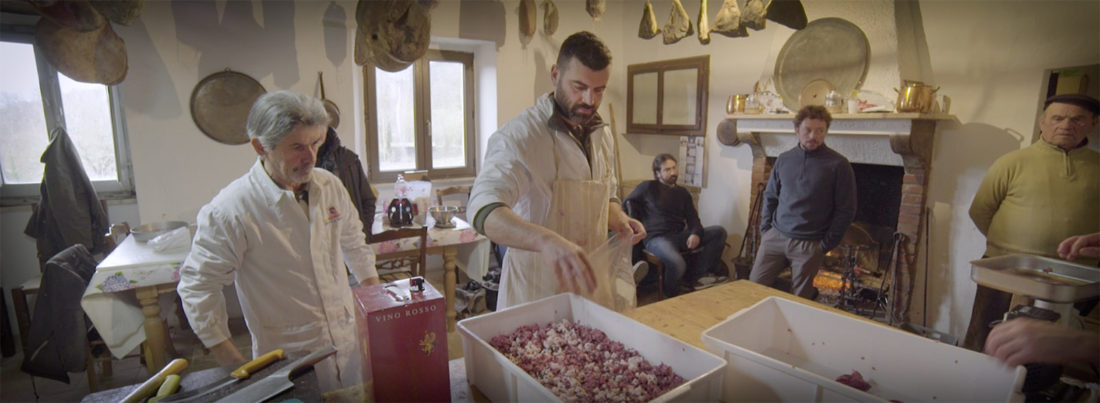
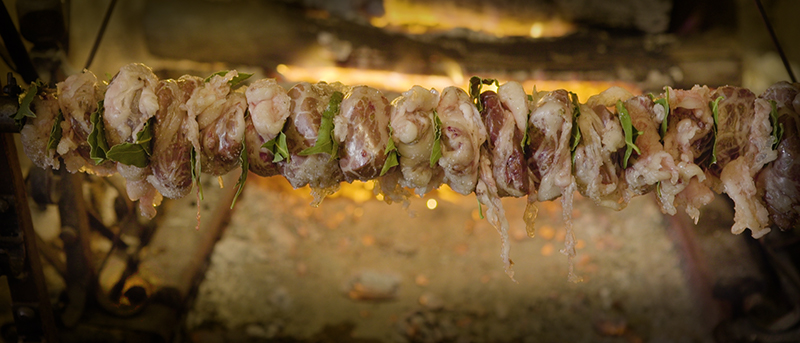

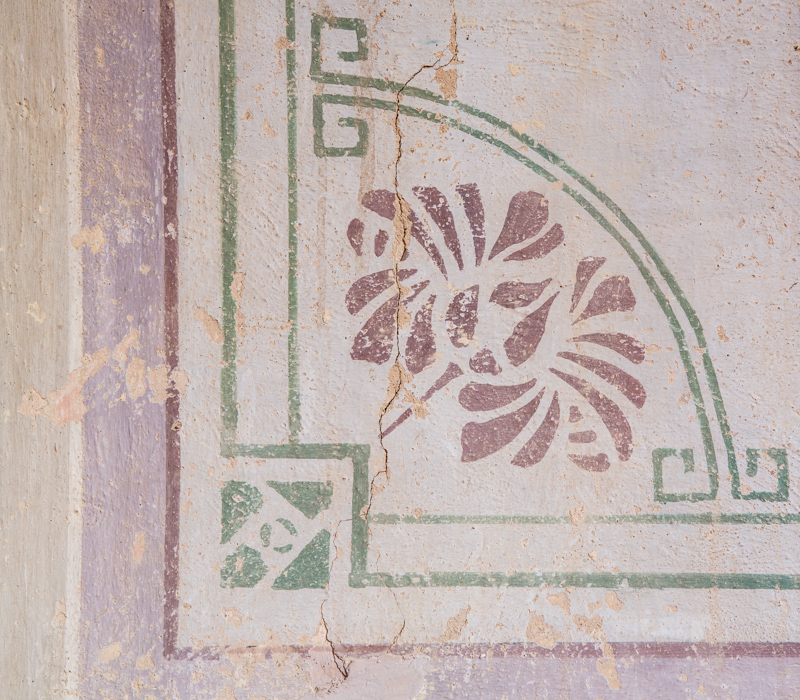
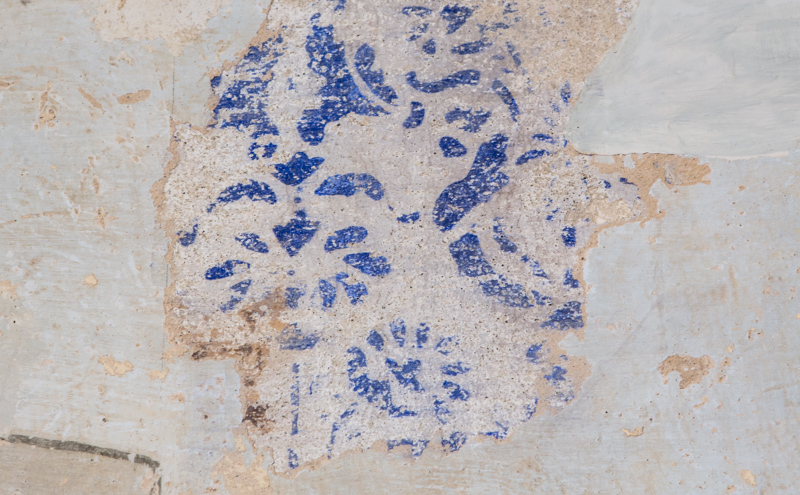 We think we’ve pieced together that the earlier decoration was probably done in the 1700s, and the art deco one in the 1800s. They were painted because what is now our bedroom, which is on the second floor, would have probably been the living room at the time, as you would never receive guests on the ground floor.
We think we’ve pieced together that the earlier decoration was probably done in the 1700s, and the art deco one in the 1800s. They were painted because what is now our bedroom, which is on the second floor, would have probably been the living room at the time, as you would never receive guests on the ground floor. This older paint dates from when our bathroom wall was part of a tower. And you can go back and back. A very nice farmhouse that is near us down the hill was once a Roman villa. The tiny lane in front of our house was originally an Etruscan road. And that’s just what we vaguely know about.
This older paint dates from when our bathroom wall was part of a tower. And you can go back and back. A very nice farmhouse that is near us down the hill was once a Roman villa. The tiny lane in front of our house was originally an Etruscan road. And that’s just what we vaguely know about.